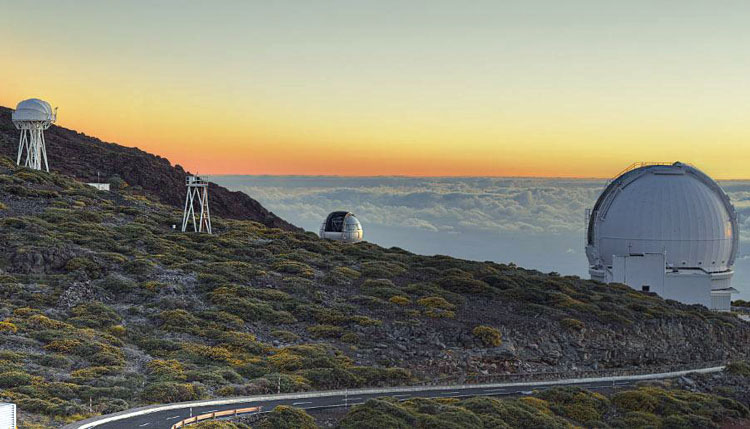The Diplomat
The Canary Island of La Palma will host from 3 to 7 October the “DarkSky” Conference on “Dark and Silent Skies for Science and Society”, organised by the United Nations Office for Outer Space Affairs (UNOOSA), the Instituto de Astrofísica de Canarias (IAC) and the International Astronomical Union (IAU).
The decision to hold the event on La Palma was taken on the 26th of July in Vienna, and the agreement between Spain and the United Nations to hold the event was recently published in the Official State Bulletin (BOE). The island is home to the Roque de Los Muchachos Astrophysical Observatory, a prestigious centre with one of the most advanced telescope arrays in the world.
According to the agreement, the conference will be funded by the Instituto Astrofísico de Canarias for a maximum of 20,000 euros, and will be attended by astronomers, technicians, engineers, business people and politicians, with a limit of 150 participants.
The event is a continuation of a workshop held a year ago with the same title and online, due to the COVID-19 pandemic, which brought together a thousand researchers from all over the world to watch over the natural darkness of the night. A document was approved to provide governments, municipalities and companies with a legal and technical basis to prevent the possible negative impact of new technologies on night sky observation and biodiversity.
The DarkSky Conference will focus on the rise of urban LED lighting, low-Earth orbiting satellite constellations and high-power radio emissions, which are becoming an unprecedented threat to the visibility of the natural night sky.
The agreement signed between Spain and the United Nations identifies the following as objectives of the meeting: a) To identify best practices for protecting astronomical sites from light and radio pollution. b) To link the darkness of the sky to human and natural well-being. c) To discuss technological innovations that would improve the darkness of the sky at all levels. d) To discuss new opportunities for private companies and professionals in this sector. e) To identify future opportunities and threats arising from technological advances, such as satellite communications.
Participants are expected to include decision-makers from national space agencies; experts from the space, business and academic communities; national policy makers; experts from international centres of excellence, researchers and engineers involved in the use of space activities. In addition, private sector representatives, space and non-space experts and civil society leaders from developing and developed countries from all economic regions will be invited.
Invited observers from the United Nations and Spain and representatives of intergovernmental or non-governmental institutions or organisations are also expected to participate.







